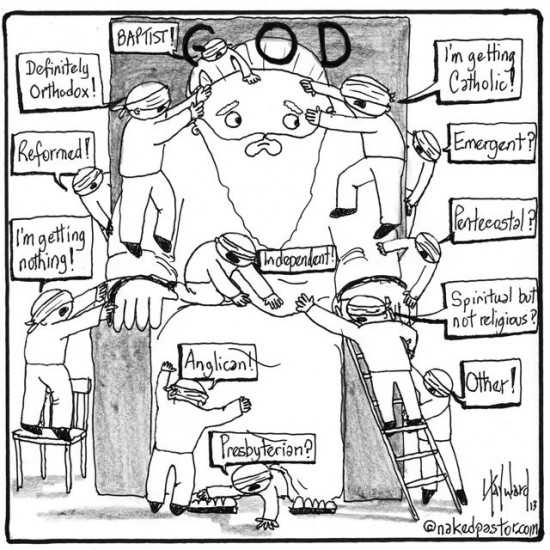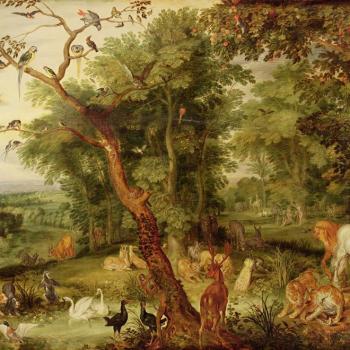No, this isn't a post about recent political happenings in the United states.
Anthony Le Donne and Pete Enns both mentioned a TED Talk which suggests that our IQs are significantly higher than those of past generations, and offers some explanations as to why.
Some would say that our obsession with TED Talks indicates that we're not as smart as we think we are. 🙂
But those posts resonated with something that I had been thinking about in connection with classes I teach. In my first year seminar course, we reecently discussed Descartes' effort to avoid being deceived, by doubting everything that can possibly be doubted.
It sounds kind of crazy.
I'm also teaching a class on religion and science fiction, and so the question of whether something that is all but universal among human beings might be considered a disorder, or a disability, on another planet, is one that can be explored. Just as we can imagine what it might be like to find a planet where everyone is autistic, or everyone is blind, or everyone has an additional sense that human beings do not have.
Our perspective on the world is shaped by our senses and our minds, which have been shaped by evolutionary factors. While it is arguable that there is an evolutionary advantage to having senses that inform us accurately about the world around us, we know that they do not give us a complete picture. Other organisms on our own planet see and hear things that we cannot.
And so we may or may not be sane, and may or may not suffer from serious handicaps, and may or may not be smart, from the perspective of other intelligent life in the universe, or of our future selves. We define such categories based on general characteristics of humankind, and have no way to judge how things might look in comparison with other sentient life forms. But we can say with some confidence that our perspective is limited.
Ironically, while there is a long history of religions emphasizing this – that human beings are not God or even gods, and so do not fully comprehend all that there is to know and understand – in our time, a different form of religion has run rampant, one which replaces the traditional emphasis on humility with confident claims to knowledge.
Yet it would appear that, if there is something that we can know for certain, beyond our own existence, it is that we don't know everything else, and are often wrong.
Let me conclude with David Hayward's recent cartoon, which takes the old parable of the elephant and does something more literal with it, but still illustrating the results of our partial and flawed perspectives on reality, including ultimate reality:













